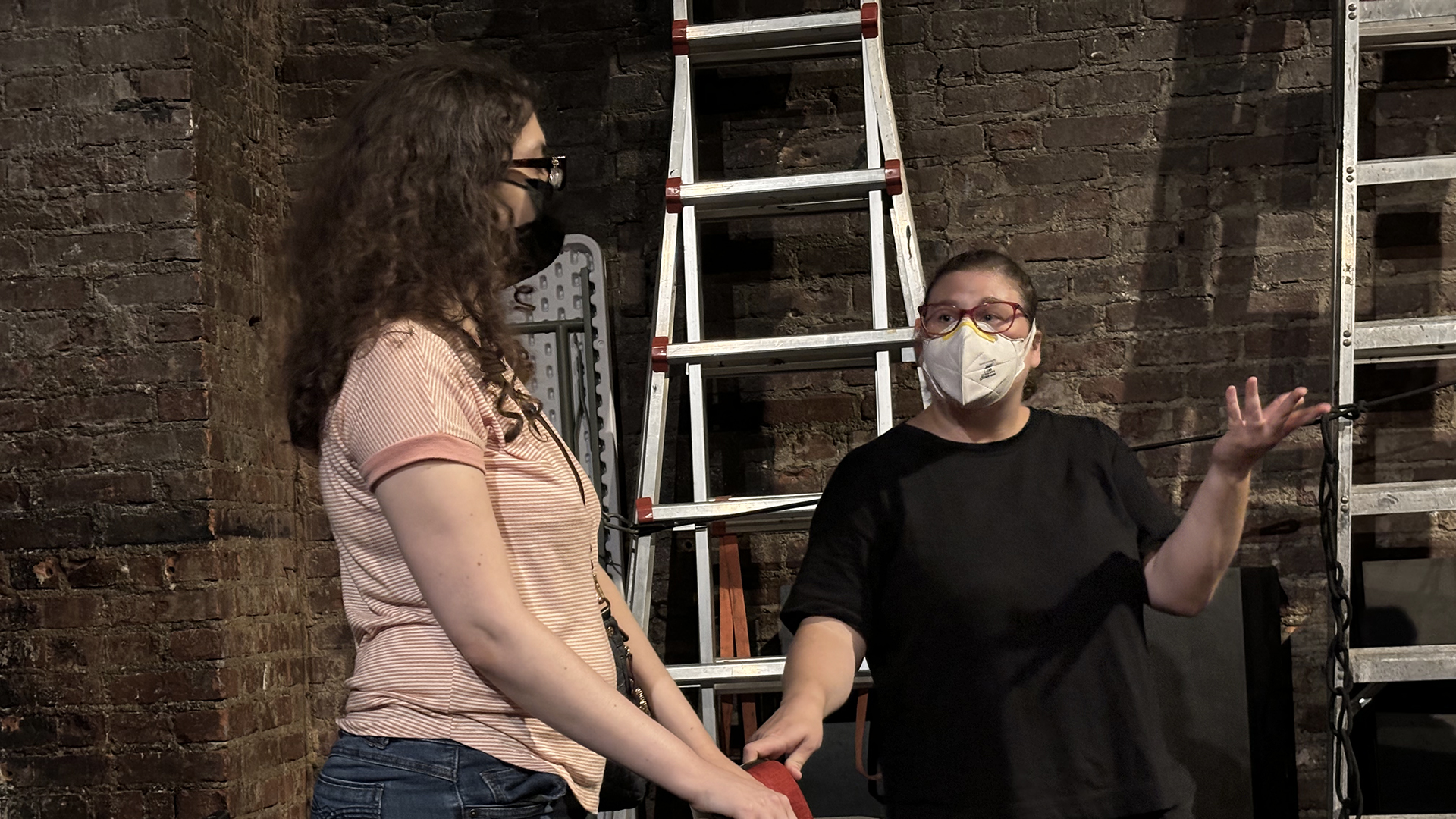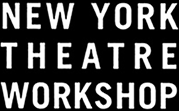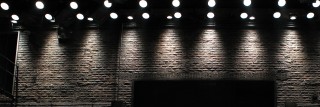

We are so excited to share that we are partnering with consultants Miranda Lee & Aliza Greenberg to explore offering relaxed performances for our productions. We feel so lucky to be working with Aliza and Miranda and look forward to growing these offerings and sharing more as we move ahead! Read on for an in-depth interview on their process, approach, and experience with relaxed performances and accessibility offerings.
What was your first introduction to NYTW?
ALIZA: I always knew of New York Theater Workshop, I went to high school in the days of Rent, after all, but the first production I saw at the Workshop was The Misanthrope directed by Ivo van Hove in the 2007-2008 season. I was a volunteer usher and went on to be a volunteer usher there until 2020. When I returned to seeing theater again in the pandemic, I was excited to return to NYTW for American Television.
MIRANDA: I was approached by Trevor Catalano, who asked if I would like to help consult on ways to make the NYTW more accessible to neurodivergent and other disabled audiences. In March, Trevor invited me to watch a performance of I Love You So Much I Could Die. I was captivated by the show’s uniqueness and innovation. While the show is not about disability, Mona Pirnot’s use of text-to-speech as dialogue made me think about how there could be a future where disabled actors who require this technology to communicate could utilize it in their performances. (I do know text-to-speech was used by disabled actors in the show All of Me, which was presented at The New Group). What the team often communicates to Aliza and I is, “We recognize areas where we are limited, but what can we do within these limitations to make our disabled audiences feel most welcome and how can we keep our efforts up?” Aliza and I give the blueprints, sharing our experiences and observations as consultants, and NYTW is the construction worker, truly doing the work in pushing for what theater could be. One of my favorite memories is when I assisted with a sensory-friendly performance of New York City Children’s Theater’s My First Nutcracker. I loved watching the young, neurodivergent audience openly react to what was happening on stage and stim while dancing with the performers. It made me happy that these children could be as they were without being reprimanded. Another favorite memory of mine also involves a sensory-friendly performance of My First Nutcracker. A child and her mother were sitting in the lobby so the child could decompress. In the show, the main character’s brother accidentally tears off the nutcracker’s arm. This upset the child and, even though she knew the nutcracker would get better, she felt reluctant to return. I approached the child with a visual story of My First Nutcracker and showed it to her so that she could connect with the story even while outside the theater. While it took some time for the child and mother to return to the theater, I am glad I could share an accessible resource so the child wouldn’t feel alone with her emotions. My work has taught me how the most meaningful theater-going experiences are a result of theaters and their staff focusing on granting community, inclusivity, and care for audiences of all ages and experiences. NYTW’s behind-the-scenes commitment makes me believe that they will grant those meaningful theater-going experiences to their audiences through their upcoming accessible performances and resources.
Can you tell us the work you do?
ALIZA: In addition to consulting with theater companies to increase accessibility for people with disabilities, specifically neurodivergent audiences, I also work at the intersection of arts, education, and accessibility in different ways. I am the Community Outreach Outreach Coordinator at the LearningSpring School, a K-8 school for autistic students where I previously served as the Arts Enrichment Coordinator. I am also the Project Leader for the Supporting Transitions project with the Museum, Arts and Culture Access Consortium (MAC) where I help cultural organizations increase opportunities for adults with developmental and intellectual disabilities. I am also an adjunct professor at City College of New York, New York University, and Moore College of Art & Design.
MIRANDA: I have been an educator and disability consultant for four years. I am dedicated to ensuring that neurodivergent people of all ages and experiences feel welcome in cultural organizations, and am open to feedback on how to improve spaces and resources for other disabled demographics (blind/low vision, wheelchair users, etc). My work has ranged from speaking at accessibility trainings (New Victory Theater, Public Theater/Ma-yi Theater), to helping create accessible resources, i.e. visual stories (New York City Children’s Theater, Jackie Robinson Museum), to educating disabled teens about cultural organizations and how to prepare for interviews (NYC Doe District 75/Museum, Arts, and Culture Access Consortium’s Cultural Careers course). I have also co-led the Museum of the Moving Image’s Marvels of Media Festival (an initiative dedicated to spotlighting and uplifting autistic media makers) and, in this position, have ensured various accessibility components are implemented throughout the festival’s lifespan (having a quiet space and sensory kits, writing content warnings for the films, emailing an itinerary to autistic media makers in advance and asking autistic media makers participating in Q+As if they would like to receive questions in advance).
What is your partnership with NYTW like so far?
ALIZA: My colleague Miranda Lee and I have been working with NYTW to help the theater conceive of and implement relaxed performances at the theater. Every theater doing the important work of making their productions accessible to all audiences has to develop practices that work for them both as a physical space and an audience experience and culture. The staff has been so thoughtful about how to create experiences that are accessible and inclusive and that provide an authentic NYTW experience as they welcome new audiences. We have been providing guidance, asking questions, and sharing experiences so that we can work together to create something truly welcoming for neurodivergent audiences.
What is the most memorable show or experience you’ve worked on, and what are you most looking forward to in this partnership?
ALIZA: My most memorable theater experience was taking my autistic brother to Up and Away, a production I created with Trusty Sidekick Theater at Lincoln Center for the Performing Arts. I had taken him to one show prior to that through Theater Development Fund’s Autism Theater Initiative, which was also an incredibly special and memorable experience as it was the first time we had gone to the theater as a full family and it was well into adulthood. However, Up and Away was unique because we had created a show specifically for autistic audiences. We worked with area schools to develop material. Taking my brother to this show and seeing him radically welcomed by the theater and the performers into this unique multisensory experience was an unmatched experience. Through working on that show I learned how relational and customized accessibility needs to be. Accessibility is not a formula or a checklist. It is a culture, a practice, and a relationship. I am looking forward to bringing these values into this partnership with NYTW because I have already seen how they have embraced this mentality. I am thrilled at how our time together has allowed us, Miranda, me and the staff at theater, to take great care to consider the best ways to create a welcoming and responsive experience for audiences.
What is your first memory of going to the theatre and/or how did you fall in love with theatre?
ALIZA: I started going to the theater at a very young age seeing the high school musicals where I grew up in a suburb of Philadelphia. I went to my first Broadway show when I was in 1st grade to see Meet Me in St. Louis and then I saw Gypsy on Broadway not long after that. I always loved theater because, as a very anxious kid, I felt very calm in the theater where we could just sit and watch a story, shut away from the hustle and bustle of the outside world. I was a theater kid through and through, performing musicals in the living room with my sister growing up. I was actually a downtown theater fan from a young age as well. When I was in 8th grade, my grandparents took me to see Waiting for Godot at Classic Stage Company. The production starred Christopher Lloyd, Tony Shalhoub, and John Turturro. I am so happy I could see the downtown theater that young because so many of my favorite productions, the ones which open your mind to new ways of communicating and telling stories, were downtown productions.
MIRANDA: I grew up performing in local theater communities for fun. My favorite program was Play Group Theater’s three-week teen program. Us campers were tasked with putting a show together in three weeks based on a theme. The results were always extraordinary. As an autistic person, I struggled with making friends and being myself. Sometimes, I still feel a sense of isolation and uncertainty when navigating the larger world. Yet I remember, when I was in the world of theater, and when I was with people who accepted my nerdy, quirky self, I felt like I belonged. I had the privilege of not being completely overwhelmed by the theater environment even though I am autistic. So, now that accessibility is being advocated for, I want to share that sense of belonging that theater provided for me for those who aren’t able to access the world of theater and the arts the way I was. This is the core of my work as a disability consultant.
What or who inspires you?
MIRANDA: At Play Group Theater, I met Kiera Allen, and I would reunite with her many years later by pure chance at the ReelAbilities Film Festival panel I spoke at. Kiera is the first wheelchair user to star in a horror film (Run) and she continues to do incredible work as an actress and writer. When I think about someone who perseveres with a glowing presence, I think about Kiera. I hope to someday reach her level of commitment and passion (though perhaps I already have and don’t yet recognize it).
Explore more
Categories: Community Spotlight.

 My Cart
My Cart My Account
My Account Gift Certificates
Gift Certificates Find Us
Find Us




